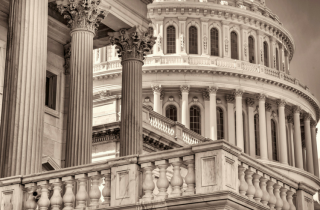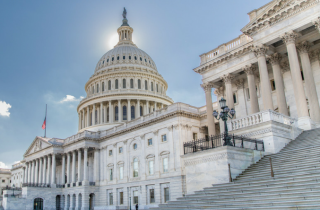Big Federal Cosmetic Policy Reform Enacted
Brings major improvements, critical safety gaps remain
FOR IMMEDIATE RELEASE
JANUARY 10, 2023
CONTACT:
Janet Nudelman, Breast Cancer Prevention Partners
Erika Wilhelm, Breast Cancer Prevention Partners
WASHINGTON, D.C.— Breast Cancer Prevention Partners (BCPP) and its Campaign for Safe Cosmetics (CSC) issued the following statement in response to the inclusion of the Modernization of Cosmetics Regulations Act of 2022 in the Fiscal Year 2023 omnibus spending bill:
We commend Chairs Patty Murray and Frank Pallone and Ranking Members Richard Burr and Cathy McMorris-Rodgers on reaching an agreement for advancing federal cosmetic policy reform. The legislation makes many constructive and long-overdue changes to the Federal Food, Drug and Cosmetics Act, which has not been significantly amended since it was enacted over 80 years ago, including:
● Requiring formal FDA registration of cosmetic facilities, products, and ingredients;
● Establishing good manufacturing practices;
● Requiring serious adverse event reporting;
● Requiring companies, for the first time, to disclose their use of specific fragrance and flavor ingredients to the FDA;
● Requiring the public disclosure of the ingredients in professional salon products as well as the disclosure of fragrance allergens;
● Creating standardized testing for asbestos contamination in talc; and
● Giving the FDA the urgent authority it needs to recall cosmetic products that are harming human health.
These have all been core priorities of BCPP and our Campaign for Safe Cosmetics since its inception in 2004. These advancements were made possible by the hundreds of thousands of consumers along with leading NGOs and clean cosmetic companies from around the country who spent the last decade advocating for meaningful, comprehensive federal cosmetic safety policy reform.
Despite this important progress, we are disappointed that the legislation codified a dangerously weak safety standard that does little to change the “buyer-beware” situation that consumers currently face regarding the safety of cosmetic ingredients. And we were disheartened by the inclusion of sweeping federal preemption of the ability of the states to legislate on cosmetic safety. The new federal cosmetic law prohibits the states from legislating on cosmetic safety in eight different ways that significantly limit their ability to protect the health of their residents, including establishing or continuing any cosmetic safety law addressing registration and product listing, good manufacturing practice, recordkeeping, recalls, adverse event reporting, or safety substantiation, preserving only the right of the states to ban or restrict individual chemicals from cosmetics and continue existing reporting laws.
While we are thankful for the advancements made in cosmetic safety represented by the passage of the Modernization of Cosmetics Regulations Act of 2022, significant work remains to address critical gaps in cosmetic safety that impact everyone, especially women of color and professional salon workers. We look forward to working with the incoming leadership on the Senate HELP Committee and House Energy and Commerce Committee to ensure the health-protective implementation of this important new law. We also look forward to securing passage of the crucial consumer health and safety protections and much-needed supply chain transparency that were left out, such as those reflected in Congresswoman Jan Schakowsky’s Safer Beauty bill package which will make beauty and personal-care products safer for all.
Read our full Analysis of the Modernization of Cosmetics Regulation Act of 2022
###
Breast Cancer Prevention Partners (BCPP) is the leading national science-based policy and advocacy organization working to prevent breast cancer by eliminating environmental exposures and toxic chemicals linked to the disease.
The Campaign for Safe Cosmetics (CSC), a program of BCPP, protects people and the planet from toxic chemicals by educating the public; transforming the beauty industry to make products safer; and advocating for health-protective laws that benefit everyone regardless of where they live, work, or shop.
Types: Press Release, Statement



